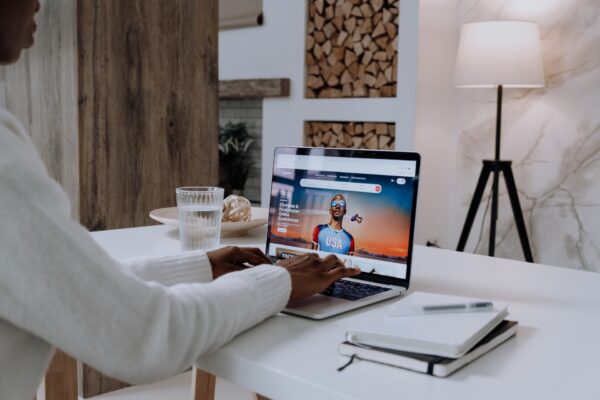Complaints about racial profiling or discrimination toward Blacks by home-sharing services companies such as Airbnb — as shown through the hashtag #AirbnbWhileBlack — are nothing new, with the company even being hit with lawsuits for the same. Now in a new report, Airbnb, which has launched new initiatives and various resources to combat bias and discrimination over the last few years, is acknowledging issues Black customers have faced when booking or staying in vacation rentals.

The report titled “A Six-Year Update on Airbnb’s Work to Fight Discrimination and Build Inclusion” tracked the company’s progress over the last few years using data collected from two racial audits in 2016 and 2019.
In response, Airbnb has launched new initiatives and various resources to combat bias and discrimination over the last few years. However, a new research found that Black users are still facing difficulties in a study titled, “A Six-Year Update on Airbnb’s Work to Fight Discrimination and Build Inclusion.” It tracked the company’s progress over the last few years using data collected from two racial audits in 2016 and 2019.
Inside the Report
According to the company, Black customers are less likely to receive confirmation of their reservation on Airbnb compared to white customers, based on perception. Data shows users who were perceived to be Black had a booking success rate of 91.4 percent in 2021 compared to those who were perceived to be white at 94.1 percent.
“It is a meaningful difference, and it’s unacceptable. It is something that we obviously are not okay with and we are doing a lot to address,” Janaye Ingram, director of community partner programs and engagement told CNN Business. She added, “You can’t fix what you don’t measure.”
To further measure the experiences of hosts and guests of different perceived races, Airbnb also used data from Project Lighthouse. The initiative launched in September 2020 through a partnership with Color of Change, a nonprofit civil rights organization. It’s supported by the National Association for the Advancement of People of Color and Asian American advancement groups.
“Racial audits work, as long as corporations make the changes necessary to address what they expose,” said Color Of Change president Rashad Robinson. “Six years after Airbnb’s first racial audit, and two years after Color Of Change negotiated Project Lighthouse, Airbnb is now a leading example of what it looks like to back up the rhetoric of racial justice with the policy, practice and personnel that can prevent rampant racial discrimination.”
Airbnb examined years’ worth of research to tackle the rental company’s biggest concerns. In a 2015 study, professors at the Harvard Business School suggested travelers with white-sounding names booked successfully 50 percent of the time compared to 42 percent of Black-sounding/African-American names.
Meanwhile, a 2014 report revealed that Black hosts charged 12 percent less for rentals than non-Black hosts. Findings discovered that Black hosts use lower prices to appear more attractive to users online, depending on location.
“Moreover, Black hosts receive a larger price penalty for having a poor location score relative to nonblack hosts,” said researchers. “These differences highlight the risk of discrimination in online marketplaces, suggesting an important unintended consequence of a seemingly routine mechanism for building trust.”
What has Happened
Thus far, Airbnb claims it has suspended nearly 4,000 accounts worldwide for violating its Nondiscrimination Policy. It states that, “Airbnb recognizes that some jurisdictions permit, or require, distinctions among individuals based on factors such as national origin, gender, marital status or sexual orientation, and it does not require hosts to violate local laws or take actions that may subject them to legal liability.” The policy continues, “Airbnb will provide additional guidance and adjust this nondiscrimination policy to reflect such permissions and requirements in the jurisdictions where they exist.”
This year, Airbnb began digging into the site’s glorification of former slave houses and plantations on U.S.-based properties. A property was removed from the site after a Mississippi host was exposed for renting a former slave cabin. According to Atlanta Black Star, the listing was marketed as a luxury property.
The company’s updated policy prohibits the promotion of properties with “slavery-related features as a selling point of a stay.” This includes any home or property “on a former plantation where enslaved people lived or worked if structures that existed during the time of slavery are still present on the property.”
Airbnb has taken specific steps to improve the experiences of their guests and hosts regarding racial discrepancies. Some changes include “Instant booking to bypass host approval and removing guests’ profile pictures prior to booking.”




